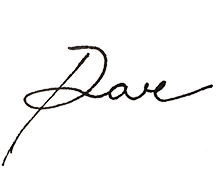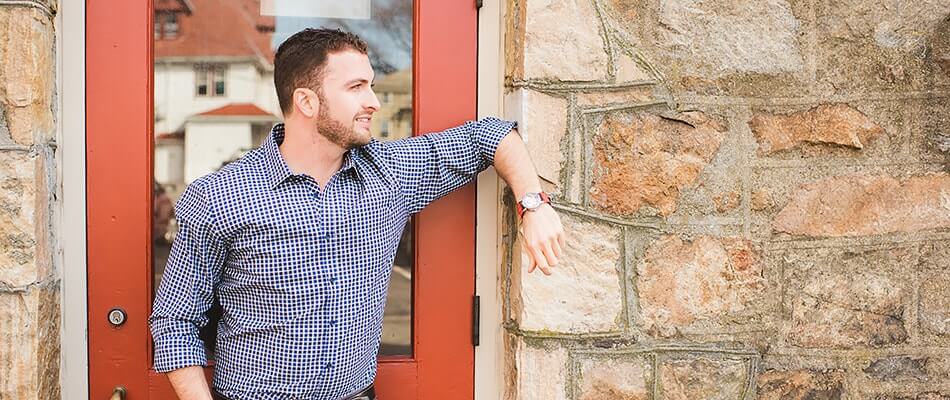When we last left off in our story, I was walking through the door of someone’s home in Arlington, Virginia to attend a White House office reunion party.
Because more than 11 years had passed since I had worked at the Office on Environmental Quality, I worried that I might know no one inside and end up quietly playing with the family dog for the evening.
Instead — and to my delight and surprise — I found myself enthralled in fascinating conversations with a dozen or more former colleagues with whom I had worked at the White House more than a decade ago.
Names that I hadn’t thought of or spoken in ages suddenly sprung back to mind as a parade of familiar faces walked through the door behind me. Stories that I had forgotten — a policy project, happy hour drinks, a proxy call with the EPA and NOAA, bowling on the White House lanes — bubbled forward from the recesses of my memory.
I felt like I was with old friends again.
And that surprised me because, as I told you when I wrote to you last, I was “only” a lowly seasonal intern at the time.
Maybe I ought to stop that — qualifying past accomplishments and memories and moments with dismissive terms like “only” and “just”.
Because, there I was, not only remembered but welcomed and embraced, eleven years later.
When I left the party for my Arlington hotel that evening, I was abuzz with energy and excitement. Despite attempts to sleep soundly, my mind raced all throughout the night (something that happens to me after lively social evenings).
Every time I dozed off, I woke again having just replayed one of the many invigorating conversations that I had had at the party hours earlier.
The conversations I experienced were all of a similar theme. If you’ve ever attended a reunion party of any sort, I’m sure you know the kind:
“What are you doing now, all these years later? And how did you end up finding your path?”
Somehow, it had never occurred to me that I would find myself telling an 11-year story of how I left Washington D.C., quit my job in politics, and began to pursue a career in writing.
Perhaps I was so convinced that I wouldn’t know anybody at the party that I hadn’t thought to rehearse my answers.
Here’s what I found myself sharing when that room full of White House staffers and Presidential Appointees asked what, exactly, I was doing with my life.
(I think you’ll find my replies relevant to why you’re here.)
“What are you doing these days?”
Whenever anybody asks, I reply by saying that I’m a writer. I’ve self-published a handful of books, and I’ve been in the process of getting a book deal this year, and I consider myself a writer by vocation. But the truth is, I do a lot more these days with writing than just write for myself.
I’m a small business owner and I run a one-person business. I provide professional writing services — everything from site copy to About Me pages and LinkedIn profiles — to strategic communications consulting.
On the front-facing side of my business, though, I run a platform that serves writers, creatives, artists, self-employed folks and the creatively-curious with resources to more efficiently and more rewardingly express themselves in the world. I create courses, teach webinars, and coach dozens of individual clients every year.
“Who do you find yourself working with?”
My clients, students, and readers share similar core values: they’re hard-wired to care and want to live their lives with meaning, purpose, and fulfillment. They, like me, believe that the journey of life should be as rewarding as any outcome or goal. But they’re highly driven to be the best, most authentic and most unapologetic versions of themselves.
My clients are almost always partly or fully self-employed, or aspiringly so. They’re called to express a mission, a calling, or a big idea by way of their business, or a book, or building a thought leadership platform. They feel unexpressed and are determined to live a more fully expressed life.
“How’d you find your way into what you’re doing now?”
It’s been an evolving journey and it continues to evolve to this day. But, when I look back over the last decade, I can see the overlaps and similarities and core threads that brought me here today.
When I left politics behind and decided to make a go at it as a writer, I thought my dream was to become a best-selling author and to travel the world speaking about one major idea that I had: that the true meaning of leadership can be found in the idea of leading without followers, such as it is that, today, the meaning of leadership has been perverted to equate to sums of wealth, status, acclaim, or followers.
Today, I realize that all of my work ties to this key idea but without really needing the word, “leadership.”
When I coach a writer, I’m coaching up their personal agency and autonomy and self-determination.
When I teach a workshop on overcoming avoidance, I’m guiding creatives to recognize that their own personal healing and self-knowledge practices are pathways toward greater and greater self-actualization.
When I write a newsletter for my few-thousand readers worldwide, I am reminding them that the stories of their lives are their own to tell, and so they ought to start living the stories of their lives as if they are the greatest privileges we possess.
“What do you mean when you say ‘self-knowledge’? What does that mean to you?”
I consider self-knowledge to be a practice in recognition of the self. To me, self-knowledge represents first an ongoing, deliberate, lifelong examination of our psychology and perceptions. Since our perceptions and mental stories literally define our understanding of who we are and what matters in life, to me, it only makes sense to continually assess, inquire, and challenge ideas that shape our view of the world.
When we challenge them, we gain awareness and with it the power to choose to change our perceptions.
More than just a mental game, though, I consider self-knowledge to be a practice in embodying and expressing the sense of purpose, passion, joy, service, and love that we feel called to experience in this lifetime.
To me, self-knowledge is a pathway of relentless love and unapologetic appreciation for all that we are, inside and out.
“How do you ‘teach’ self-knowledge and self-expression? How does it actually work?”
Writing to me was my first outlet for accessing my inner world. When I was young, I struggled to properly and completely express myself using my words — in classrooms and with authority figures, I always felt like I was fumbling for the right sentiment. I would need to retreat into myself, inquire within, put pen to paper, and then emerge with clarity for what I felt, believed, knew to be true, or wanted to offer.
Today, I realize that writing is a perfect antidote to a fast-paced, overly-anxious, zero-attention-span world in which we live. Writing is a slow, tempered act in selectively choosing — and leaving behind — our words, which brings with it a refreshingly mindful and patient and reflective temperament. Writing is a perfect teacher of slow, conscious, intentional thought, decision, and action.
To me, self-knowledge walks in hand with self-expression. Acts of writing and creative self-expression embody and imbue self-knowledge. When we express ourselves — in writing quietly, or out loud — we are engaged in an alchemical act of recreating our world within and our world around us.
Expression is the bridge between our inner world, which exists on an invisible and internal plane, and our outer world, which exists in the physical world around us.
“Where do you see your work going from here? What’s next for you?”
In 2020…
As a coach, I’m committed to creating radical change in the lives of my coaching clients through slow, fearless, life-changing conversations that challenge my clients to become even more of who they truly are, and, by doing all that they are capable of achieving in their everyday lives, their work, and by making dreams their new realities.
As a teacher and content creator, I’m doubling down on my system for holistic self-expression, which I call Unavoidable Writing, to redefine the conversation, interpreted value, and experience of writing and artistry as incredibly powerful inner journeys that can transform wounds and worries into purposeful paths of beauty, service, and love.
As a writer, I intend for the stories that I share to create sanctuary space for my readers’ and students’ ritual communion with themselves, where they are welcome to reflect inwardly and engage in enlightening conversations about the ideas and experiences that matter most to them — including their yearning for a more fully expressed life.
Perhaps it shouldn’t surprise me anymore, my friend…
…that the impact we have, however small it may seem to us, can endure in the memories and feelings of the people whose lives we’ve touched, even years and years later.
If the kinds of genuine, interested inquiries that I received at that White House reunion party say anything, they remind me that we are truly the bearers and tellers of our own stories.
What stories are you carrying into the end of 2019?
What stories do you want to be telling come 2020?
What is the story of the life that you want to be living?
How, whether prompted in conversation at an upcoming holiday party, might you respond?
Remember: Your story is your own to tell.

